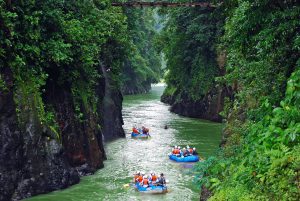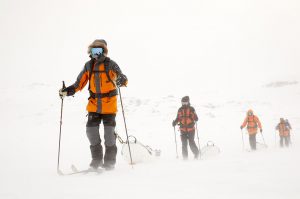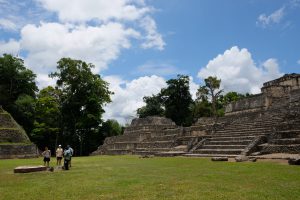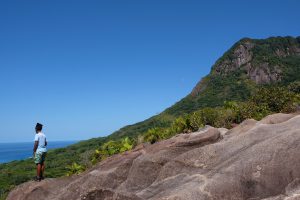
If school Spanish lessons left you cold, pack a bag, head to Spain and start learning with the locals
View online at natgeotraveller.co.uk
What form did your tuition take?
I was taught in a small group led by ever-smiling Majorca native Lola, in International House’s language school, located in the centre of Palma. The theme of the week was food — but this was really just a jumping-off point for conversation practice and learning vocabulary and new tenses. We all responded well to Lola’s energy, bringing our own interests to the class. Exercises focusing on Spanish recipes or dining habits could often turn into debates about politics or someone’s quirky hobby. That said, by the end of the week I felt confident I could hold a conversation about gastronomy — an invaluable skill for travelling in any Spanish-speaking country.
What was your daily routine?
I’d preemptively rewarded my studiousness by booking into Nakar Hotel, so my pre-class ritual consisted of a dip in the boutique property’s rooftop pool followed by fruit salad on the terrace restaurant, looking out towards the steeples and buttresses of La Seu, Palma’s sensational bay-side cathedral. Class began at 9.30am, and ran until 1.30pm, with a halftime coffee break. Afternoons were generally spent wandering the labyrinthine lanes of the former Arab and Jewish quarters or visiting the city’s art museums. Evenings were devoted to sampling Majorca’s famous food and wine.
Did exploring help your learning? Was it a two-way process?
It was lovely letting the morning’s lessons soak in while exploring a Spanish city. I found I was on a vocabulary safari, noting down words from menus or snippets of overheard conversation to take back to Lola the next day. I felt more confident, too: being able to ask directions meant I didn’t have to overly worry about getting lost, and by the end of the trip I was happy to take public buses out of the city and along the coast in search of quiet beaches.
What did you learn from it?
If you’ve ever been discouraged from language learning by stuffy school lessons, trust me: take a second shot. The progress I made over just a few days was remarkable, and doing homework in the sunshine on a cafe table never felt like a chore. The educational element added a whole new dimension to the trip, and the course felt like an investment in both myself and my appreciation of the destination.
What about Palma?
There’s a lot to love: the Mediterranean light, the architecture, the modern art. But my highlight was the food. Majorca has 10 Michelin stars, one of which belongs to the restaurant named after its British chef-owner, Marc Fosh. The food here was sensational — fresh, seasonal, with clean flavours — and served in the romantic setting of a former convent. As I explored Palma’s smaller restaurants, I noticed an emphasis on traditional recipes. I fell in love with crunchy vegetable tart coca de trampo, the region’s famous spiced-pork sobrasada, and the sugar-dusted ensaïmada pastry, bought at Ca’n Joan De S’aigo, a chocolatier that dates back to the 18th century.
What was your most successful interaction?
One afternoon, I made my way to the Convento de Santa Clara, a weathered chapel with a convent annex set around a sun-bleached courtyard. I’d heard the sisters sold delicious biscuits, but there wasn’t a soul in sight, so I nervously rang a bell. A hatch was pulled open by a chain, revealing a rotating shelf. I enquired about the cakes: they had robiols, crespells and monas a voice replied. I was floored: Lola hadn’t covered these! Several back-and-forths ensued, as we determined flavours and prices, while giggling at my errors. Eventually, the shelf span around to reveal a paper box full of coconut cookies. Success!

Top tips: Learn with the locals
Refuse the english menu
Waiters often handed me a translated menu before I’d even opened my mouth. If this happens to you, resist. Practise asking for the local menu and then chat to the waiter about the words you don’t recognise, or get both versions to compare translations.
Tell people you’re learning
Work out how to say, ‘I’m learning; sorry for my mistakes! Can you speak slowly, please?’ This will endear you to everyone. People you meet will have patience if they understand why your grammar is shaky.
Accept invitations
If you’re chatting to a local and they offer to show you around, don’t be alarmed. As strange as it seems to us Brits, Europeans usually mean it when they invite you to dine with their families.
Keep a vocabulary notebook
You need to use a new word numerous times to fix it in your long-term memory. Until then, at least it’s in your notebook.
Essentials:
How to do it: International House Palma offers Monday-Friday Spanish courses for all levels from €210 (£180) a week.
Nakar Hotel has double rooms, B&B, from €180 (£160).
Monarch flies to Majorca from Birmingham, Gatwick, Luton, Leeds Bradford and Manchester, from £68 return.
More info: visitpalma.es/en
Published in Experiences 2017, published with the Jul/Aug 2017 issue of National Geographic Traveller (UK)











